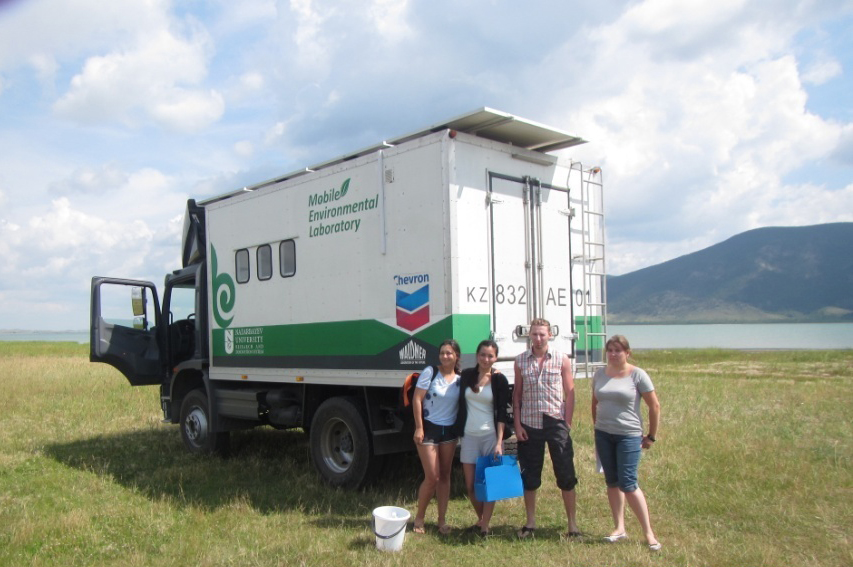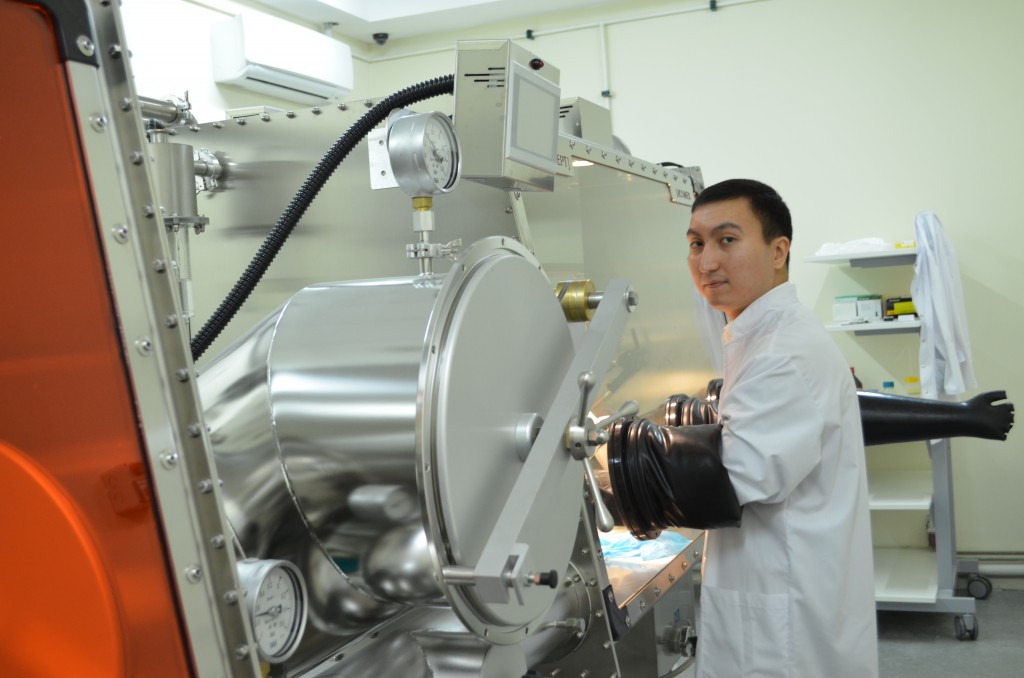Since its establishment in 2010, Nazarbayev University has developed into one of the leading educational and research institutions in Kazakhstan. The university and Chevron entered into a long-term partnership in 2012 based on the shared philosophy of striking a balance between environment preservation and the advancement of technology.
With support from Chevron, the university is developing a range of technological solutions and scientific research to improve the quality of life without compromising the biosphere.Chevron provided $2 million for the purchase of advanced equipment to upgrade laboratory infrastructure, support faculty research programmes and fund 14projects conducted by young scientists and students.
The university now has a mobile environmental laboratory equipped for quick analysis of the chemical composition of water, soil, air and contaminants, as well as meteorological measurements. Mobility is the key. Some biological samples must be analysed within a few hours after collection because samples can change rapidly and thus skew the data. The problem is solved by sending the laboratory to the sample and not vice-versa. The mobile laboratory also allows obtaining experimental data in real time and exploringa largevolume of samples.
Through Chevron’s support, the physics and material sciences laboratory at the Nazarbayev University Research and Innovation Centre has acquired a “magnetron” for investigation of advanced materials including, gallium nitride (GaN) used in many semiconductor applications. In the centre’s solar energy laboratory, scientists have created the entire process chain for fabrication of organic photovoltaic (OPV) devices. The main advantage of OPV in comparison to traditional technologies is that it has the potential to decrease the cost of solar electricity significantly.
 In addtion to laboratory infrastructure, Chevron’s support is helping Kazakhstan’s scientists improve lives through advances in the fields of energy, environment and energy efficiency.
In addtion to laboratory infrastructure, Chevron’s support is helping Kazakhstan’s scientists improve lives through advances in the fields of energy, environment and energy efficiency.
One of the student projects underway is a study of human impacts on the lakes of the Burabai National Park. The students are acquiring and analysing two decades of geological and hydrological data to measure the impact of household water use from the lake and how to restore the dramatic drop in lake levels. Another group of young scientists are researching a hydro-energy storagesystem that pumps water to an elevated reservoir, and when power is needed, sends the water flowing down through a hydro turbine, converting mechanical energy to electrical energy.
Chevron’s contribution encourages not only experienced researchers and scientists, but includes opportunities for students from all schools within Nazarbayev University. For example, a group of students has started working on a concept for a futuristic, human-friendly eco-settlement. The Eco-Village would be energy efficient and sustainable using existing technologies and integrate harmoniously with the natural landscape.
“Collaborating on the Eco-Village is a pleasure,” said Project Leader Daniil Tarasov. “We are creating a ‘nature oasis’ where citizens may enjoy fresh air and see a sky full of stars. Implementation of the idea could contribute to Kazakhstan’s reputation as a country that cares about its ecology. Applying alternative sources of energy might increase investments in Kazakhstan’s economy. To be a part of this project is a great honour and priceless experience for me. Realising that my effort might be useful for my country makes me happy.”

